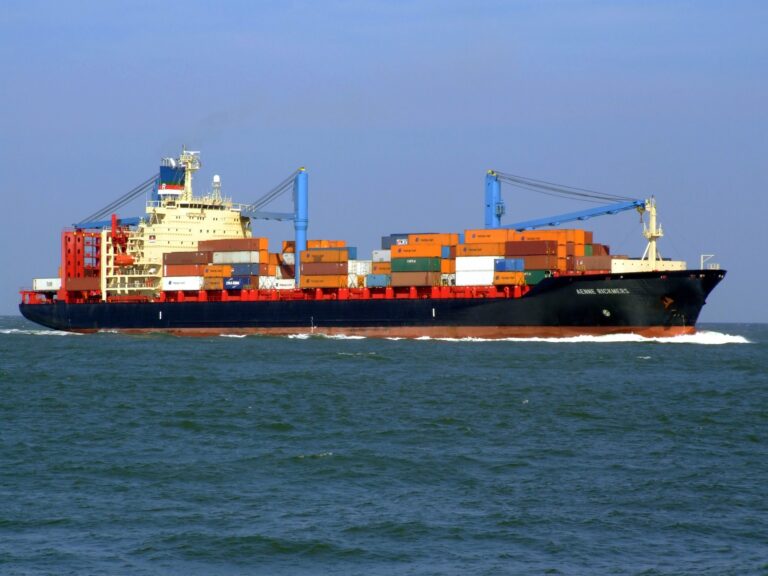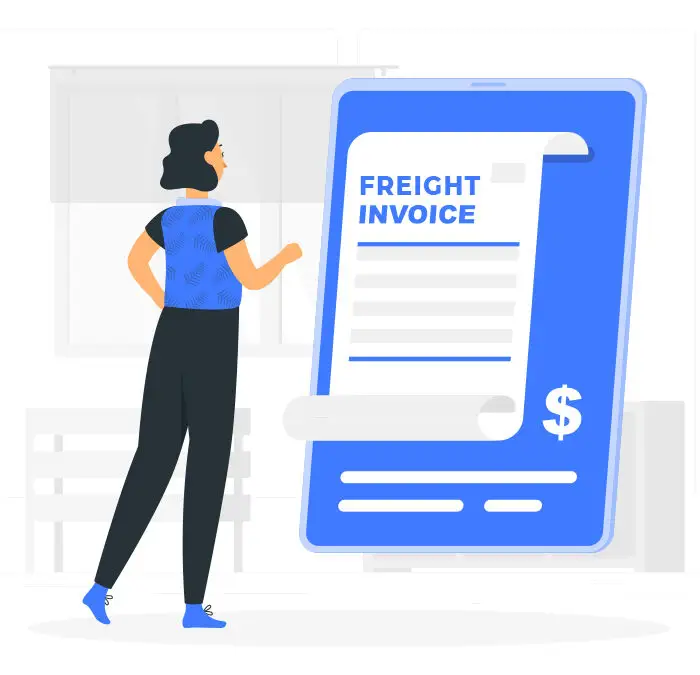Freight Invoice Errors – hidden costs affecting your bottom-line
Freight audit and payment may not be the first things that come to your mind when you analyse your expenses. However, they play a major part in running up unnecessary costs for your business.
More and more companies are heeding the implications of a very important question, “Why should you reconcile your freight invoices?”
Until and unless you are regularly checking your invoices for rate changes, missed/delayed payments and other undetected errors like shipment delays or penalties, these changes are missed and often cost your business tens of thousands of dollars.
What is a freight invoice?
As defined by Merriam-Webster, a freight invoice is rendered by a carrier to a consignee of freight and contains an identifying description of the freight, the name of the shipper, the point of origin of the shipment, its weight, and the number of charges.
Freight invoice management is the bane of any logistics manager, purely based on the fact that it can go either way. On some days, everything goes smoothly while on most other days, claims and invoices just do not match.
Identifying the freight invoice errors and taking proactive steps to get to the bottom of it can save you a lot of money in the long run.
GoComet’s innovative invoice matching solution is built-in with the ability to time-stamp actions and remarks on each freight invoice. Your auditing process is improved vastly whilst freeing your logistics team from time-consuming audit requests. It is also wired to reject duplicate invoices and double-checks for discrepancies in the final invoices through Intelligent Optical Character Recognition (iOCR) software. These features align seamlessly with the principles of Freight Audit Essentials, which emphasize accuracy, efficiency, and cost control.
Common freight invoice errors that are costing you quite a lot
An estimated 5-6% of invoices are calculated incorrectly as depicted by the Global Trade Magazine, which is why it is always advisable to match the details of your shipment with the carrier-provided Bill of Lading. To avoid anomalies where invoices cannot be reconciled, overbilling and duplicate payments are made, you need to keep a sharp lookout for freight invoice mistakes like:
- Double-charged for a shipment
One of the most important things to check for during your freight audit is a duplicate invoice. Carriers have been known to accidentally charge a single shipment as multiple shipments leading to you being double-charged for a shipment.
- Incorrect classification of shipments
A good place to start when looking at item details on an invoice is to review the product description and its related freight class or NMFC (National Motor Freight Association). These classes are based on four different factors, density, handling and liability. If a carrier incorrectly classifies your goods in the 50 class, you would be paying far more to ship those goods than you would if they were in the 500 class.
- Incorrect discount rates
You need to diligently check whether potential discounts that were previously decided with your carrier have been applied or not. When negotiating discounts with a carrier, it’s important to keep agreements on file, and audit invoices to make sure those discounts are reflected in the charges.
- Incorrect delivery details
If the address for pickup is listed incorrectly, it can result in missed/delayed shipments. Many freight companies will charge you additional fees for address inaccuracies and incorrectly classified delivery locations. There are variable fees for commercial, residential and limited access locations and it is important to maintain the “bill-to” portion of the invoice accurately.
- Additional fees charged by the carrier
Expenses like handling charges, inside deliveries, storage charges and waiting fees are often difficult to verify. This drives home the fact that you need to be vigilant and avoid overpaying or being falsely charged.
Why do you need a freight audit?
When companies are regularly shipping, the paperwork tends to pile up leading to several freight invoice errors. This makes it all the more imperative to regularly audit your freight invoices but a manual freight audit is a daunting task. It is error-prone and time-consuming. According to market studies, 12.5% of invoices that are processed manually require rework.
Instead of opting for in-house manual audit methods, it is advisable to look at options like outsourcing freight audit payment to a 3PL firm or automating your freight invoice audit process. Freight costs can make up to 10% of the organization’s expenditure and automating invoice processing is the next step in eliminating hidden costs.
Avoiding getting hit with unexpected costs and maintaining the health of your business is synonymous with a freight invoice audit, which is exactly what GoComet’s automated invoice management platform promises.
Best practices to reduce freight expenses
- Automate invoice reconciliation and approvals
There are systems available today that can not only auto-reconcile but also auto-approve your invoices based on a pre-set tolerance level. It helps increase the efficiency of operations, avoid overbilling and reduces transportation costs.
- Analysing data to keep track of freight costs
The extracted data from freight invoices, supporting shipment files, and other records create a powerful source of visibility into a company’s freight spend. This data can be used to identify instances of poor shipping performance and to determine the potential cause.
- Consolidating freight invoices
Freight invoice consolidation takes on paramount importance when talking about reducing freight expenditure. Converting all the different paper invoices that your accounting team receives every week into one freight invoice helps you avoid duplicate payments as well as cut down on invoice handling time.
You can do all this and more with GoComet’s automatic invoice matching solution. For more information, reach out to us here to get started!






